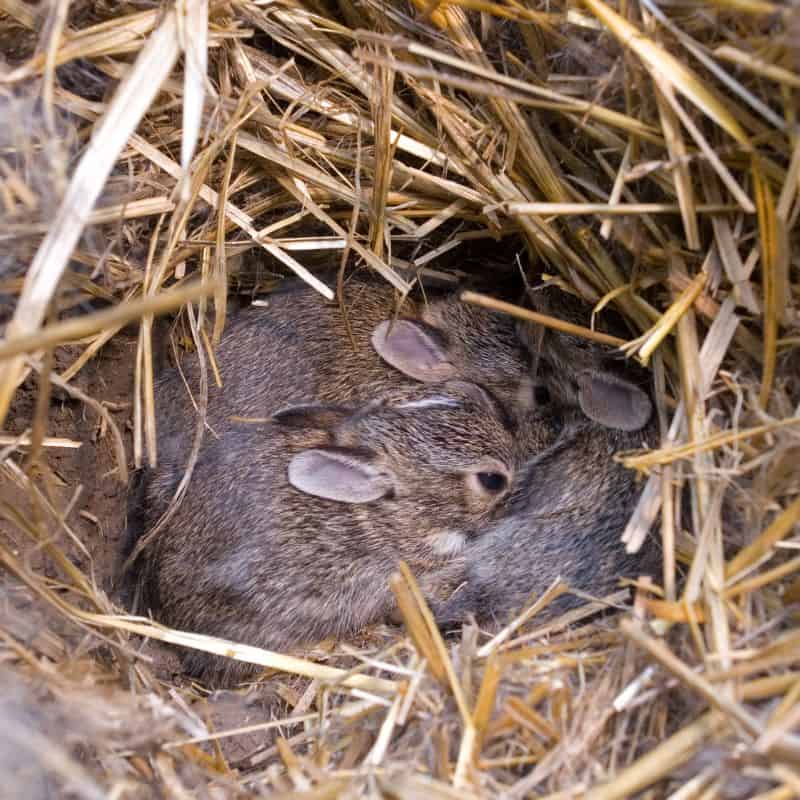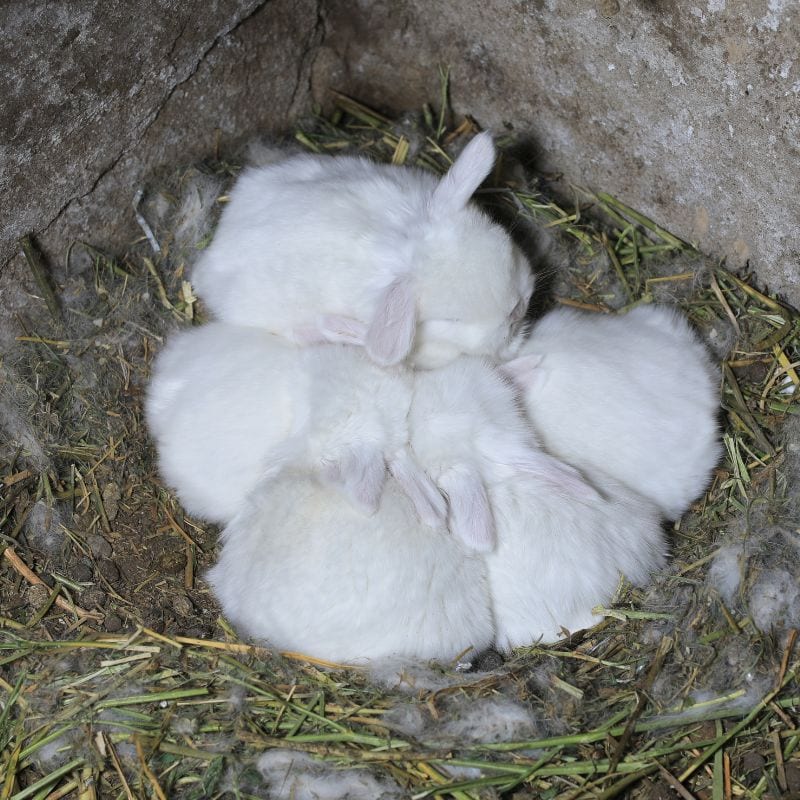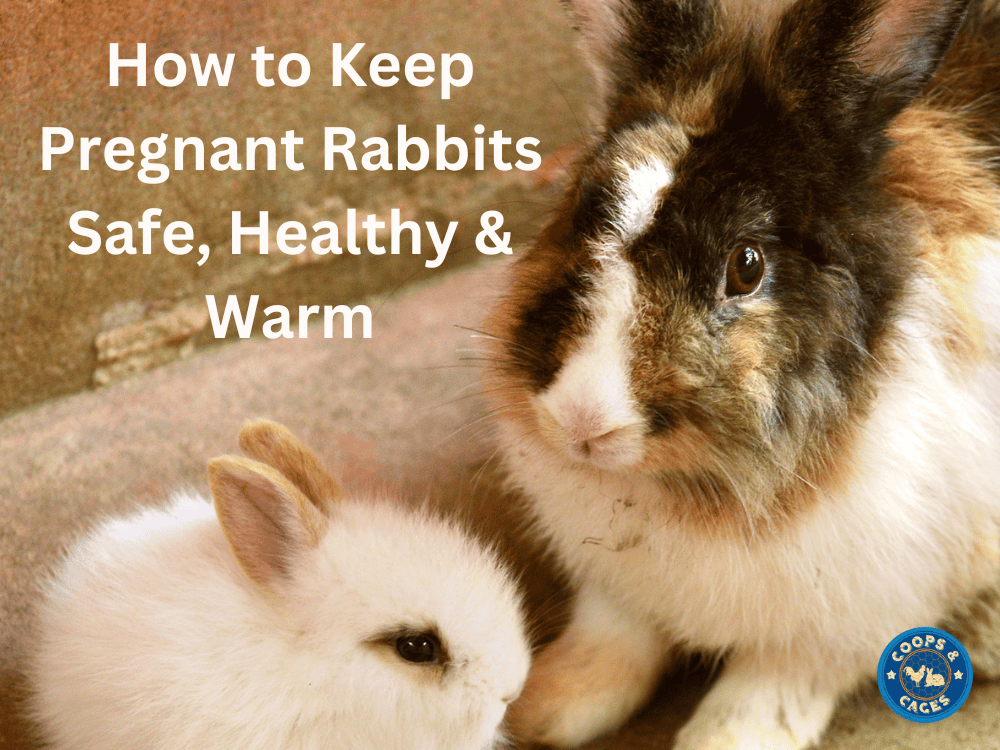Welcome to our guide on keeping pregnant rabbits safe, healthy and warm. This blog is here to help both those new to breeding rabbits or experienced breeders looking to improve their care practices.
Whether your rabbits are being bred for companionship or for meat, it’s important to make sure pregnant rabbits are well cared for.
We’ll cover everything from creating a comfortable environment to understanding their dietary needs. Our goal is to ensure that your pregnant rabbit stays happy and comfortable throughout her pregnancy.
Join us as we explore the best ways to care for these gentle creatures and provide them with the love and attention they deserve.
Keep Her in a Safe and Cosy Hutch
Mommy rabbits need a safe and comfortable place to retreat.
Choose a quality rabbit hutch that is made from timber, offers warmth, and has a private enclosed sleeping area. If your hutch is kept outdoors, you will also need to ensure it offers paramount predator protection.
Add comfortable and absorbent bedding onto the base of the hutch. Straw, shredded paper and wood shavings are all great options. Always ensure wood shavings are dust-extracted, to minimise respiratory irritation.
Ensure the hutch features an outdoor run area for daily exercise plus the necessary amenities: drink bottles, food bowls and a litter box.
Feed Her Nutritious Food
A doe (female rabbit) usually takes around 32 days to deliver her babies. During this time, she will need extra nutrition to help her babies grow and develop healthily.
Provide her with unlimited hay, unlimited clean water and extra pellets.
Vegetables are a great way to get her the extra nutrients her body demands during this stage. We recommend offering a variety including capsicum, cos lettuce, kale, cucumber and zucchini. Always feed these is moderation to prevent digestive upset.

Provide Her with a Nest Box
When your doe is close to delivering, put a nest box in her hutch. This is a safe, enclosed space where she can feel comfortable giving birth.
Line the base with comfortable, warm bedding, such as straw.
By putting the nest box into the hutch a little early, you are giving her time to become familiar with it and begin nesting. Pregnant does will pull out chunks of their own fur and use this to line the nest. This creates a soft place for the babies and is a normal, healthy behaviour.
Learn About Rabbit Pregnancy
The best thing you can do for your mother-to-be is educate yourself on rabbit pregnancy. Learn what to expect, what is normal, and what is cause for concern.
When you find out your doe is pregnant, take her to your local vet to confirm the pregnancy and assess her health. Your vet can provide advice for the pregnancy based on your individual rabbit’s medical history.
If you have any concerns during the 32-day period, we recommend you contact this same vet for advice.
A common problem after she gives birth is mastitis – an infection of the mother’s mammary glands. This is more likely to occur in a dirty rabbit hutch so clean out her hutch more than you usually would.
If mastitis occurs, the mother may be able to pass infected milk to her fragile babies and they’re likely to die. If you suspect mastitis, consult your vet immediately for antibiotic treatment.

Jordan’s Wrap
Ensuring the safety, health and warmth of pregnant rabbits is crucial for both their well-being and that of their offspring. From providing a safe and cosy hutch to offering nutritious food and preparing a nest box, every aspect of care is essential.
Educating yourself on rabbit pregnancy and seeking veterinary guidance when needed are key steps in ensuring a successful and rewarding experience for both you and your furry companions.



